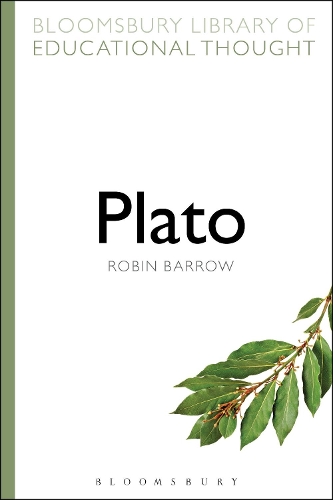
Plato
(Paperback)
Available Formats
Publishing Details
Plato
By (Author) Robin Barrow
Series edited by Professor Richard Bailey
Bloomsbury Publishing PLC
Bloomsbury Academic
23rd October 2014
United Kingdom
Classifications
Tertiary Education
Non Fiction
Ancient Greek and Roman philosophy
370.92
Physical Properties
Paperback
216
Width 156mm, Height 234mm
313g
Description
Plato was the first and most formidable thinker to recognise that education is a fiercely contested concept, and to point out what great social and personal issues are at stake in education. He articulated a compelling argument for a liberal arts education as something peculiarly befitting free and autonomous beings. He understood the centrality of education for human well-being and flourishing. And he was the first to set forth a systematic theory of education. In this text, Robin Barrow concisely and convincingly establishes the continuing relevance of Platos views to debates on such issues as nature vs. nurture (or genetic inheritance vs. social background), philosophy vs. sophistry (or the pursuit of true understanding vs. the pursuit of reputation, or perhaps simply truth vs. politics and the media). Questions concerning the fair distribution of education, moral education, value judgments and human nature are explored along with themes more specifically associated with Platos philosophy such as the Theory of Ideas. The whole is embedded in a clearly presented account of the historical background to Platos thought.
Reviews
This is a superb book: well written, beautifully crafted, and comprehensive in its content. Robin Barrow uses his considerable scholarly ability to show the importance of Plato's educational theory not only for the ancient Greeks but for the 21st century. He explains Plato's ideas in a way that makes them accessible to students and scholars alike. -- Howard Woodhouse, Professor, Department of Educational Foundations and Co-Director, University of Saskatchewan Process Philosophy Research Unit, Canada
In this excellent book Barrow displays impressive scholarship throughout but, at the same time writes in a clear, elegant and approachable manner. His views on Platos ideas are cogently argued and his conclusions concerning Platos educational influence, although circumspect, seem essentially correct. Altogether, a fine contribution to the history of the philosophy of education. -- John Gingell, Reader and Course Leader in Philosophy, University of Northampton, UK
Author Bio
Robin Barrow is Professor of Philosophy of Education at Simon Fraser University, Canada and Fellow of The Royal Society of Canada. He is the author of 25 books and over 100 articles in the fields of philosophy, classics and education.
